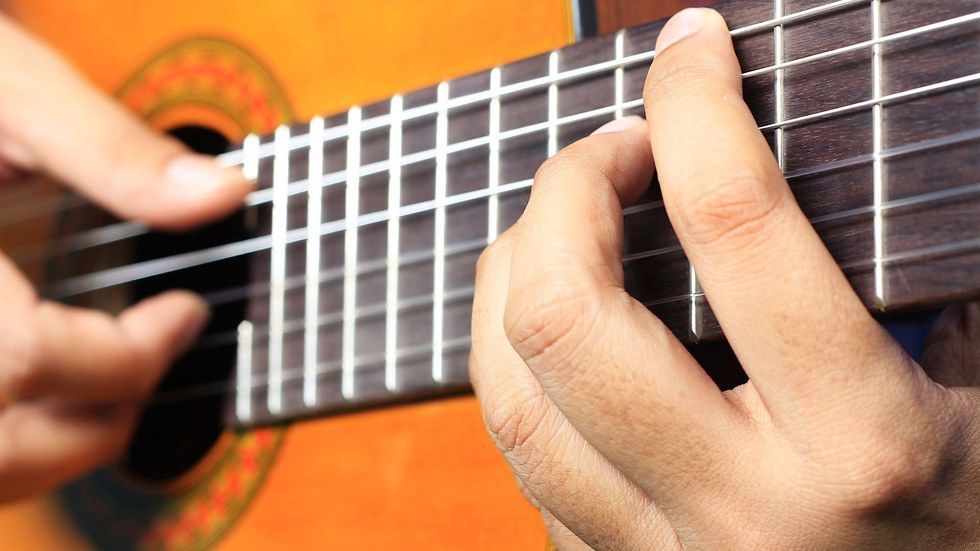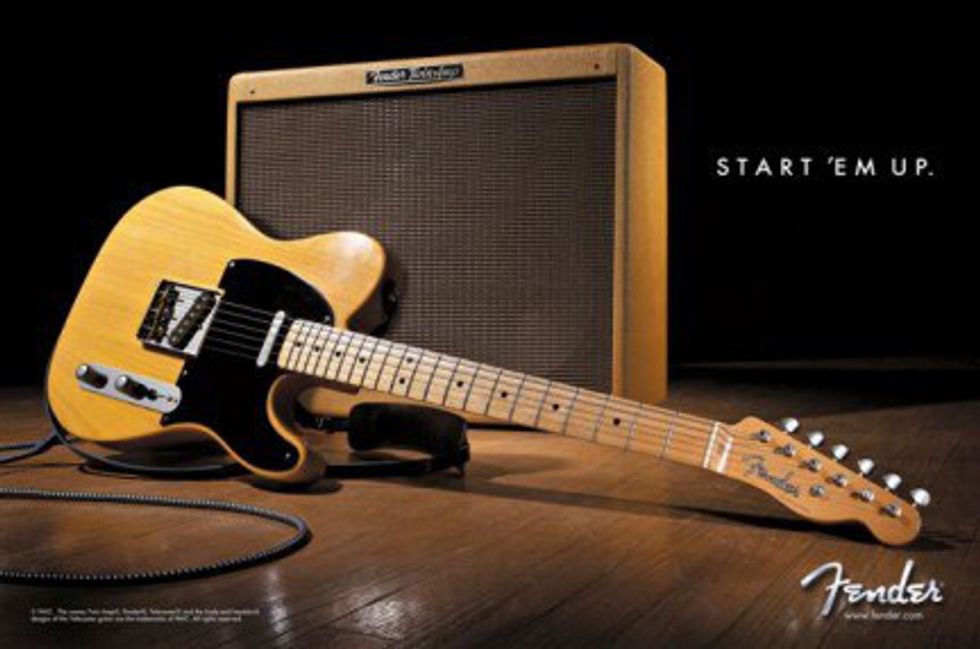Almost everyone in the world loves some form of music, whether it's listening to their favorite Spotify playlist, singing in the shower, venturing to a concert, or working out to some rockin' beats. As a result, many people hope to learn a new instrument and play like their favorite artists or even write their own songs and instrumental compositions. However, learning a new musical instrument can become tough if you have never picked one up before, don't know where to start, or haven't received any form of practical advice. These 10 tips will hopefully allow an aspiring musician's endeavors to metamorphose into full-fledged dreams and new passions.
1. Remain patient and don't give up
This is probably the most crucial tip for picking up a new instrument quickly. I almost gave up guitar after I struggled with finger picking techniques, but I continually tried to pick this important skill up and now can finger pick well. It took a good half year or so to accomplish, but persistence paid off. If you’re really serious about learning a new instrument, you have to stay patient and realize that you will improve drastically sometimes and stay stagnant at others. Each day is different, but it is important to push through days when you don’t think you play that well, especially since skills take time to develop as your mind tries to figure out how the instrument works. As time progresses, your muscle memory and mind will gradually discover accumulate new skills.
2. Practice
I cannot stress this enough. Practice does not make perfect, as my band director once said, but it does create progress. Practicing is important because it is the only way to truly develop a skill. You can watch other people play as often as you’d like, but very few people actually improve without performing techniques themselves. Even small amounts of practice add up over time and you'll notice results after a while.
3. Watch or listen to other musicians
It’s difficult to understand what an instrument should sound like if you never listen to someone great play it. When I taught myself piano, I often played contrasting music by skilled pianists like Yiruma and Duke Ellington in order to understand how to play various styles well. In addition, both of these great pianists pour emotion into their compositions, which I value since an audience should connect with music in some way, and hearing these pieces allowed me develop a great musical ear.
4. Learn your fundamentals
Basic technique is crucial to proficiency in any instrument because advanced techniques build off basic ones and appear throughout music. For example, chromatic scales frequently arise in orchestral music, while blues and pentatonic scales constitute a vast majority of jazz tunes. Knowing scales will greatly aid you in any piece of music, but neglecting them will only force you to spend extra time deciphering notes. Learning scales may be tedious, but it’s well worth the investment.
5. Experiment
Go ahead and play random notes on your instrument. It doesn’t matter if you don’t know what you’re doing because it will benefit you in the end. Playing around on an instrument greatly helps with improvisation as a musician learns how certain notes, melodies, and rhythms fit together. I taught myself both guitar and piano by ear and figured out what strings and keys played which pitches. After I learned the notes, I assembled simple melodies. As a result, I skillfully improvise on both instruments and often played keyboard solos as the pianist in my high school jazz band four years ago.
Trying out new things can also lead to cool effects — you never know when you might discover a cool piano roll, growling on saxophone, or beatboxing on flute. The innovators who developed these embellishments decided to just try something one day, and people implemented their new inventions. It’s completely possible that something unintentional could become the next best thing. I kickstarted a songwriting career this past year and I created some of my best compositions just by playing through a few different chords and listening to how the pitches fit together.
6. Find a quality instrument
Learning a new instrument can prove difficult if it constantly has leaks, broken strings, ripped pads, a frayed bow, or anything related. An instrument only sounds as great as it is built. I’ve often seen young musicians walk away from music entirely because they thought they produced a weak tone. In many cases, however, the instrument produces a subpar tone quality and the player learns to correct their sound flaws. Purchasing an advanced, professional instrument is not necessary, but it’s best not to play on a student or starter instrument because they break easily and often cause more harm than good.
7. Grab great books
Books can greatly enhance your new adventure since they contain many exercises built to develop specific capabilities. For example, many percussion books contain rudimental and rhythm exercises, while winds books have studies for scales, arpeggios, fingerings, long tones, and more fundamentals. Working on these things for about 15 minutes a day or as warm-ups make satisfactory players phenomenal. Music shops also sell solo books, which are perfect if you want to play through a full piece and perform it somewhere.
8. Watch yourself and learn
Do your friends ever mention weird habits or mannerisms you have? Novice, and even experienced, musicians also have quirks that interfere with their playing. I used to tense my fingers when I played piano instead of moving them freely. However, I never noticed this dreadful tendency until I watched a video of myself. I’ve also used a mirror to see myself play scales on guitar after I realized that I play too far down on certain frets. Whether you examine yourself in a mirror or play videos on repeat, self-evaluation helps every musician improve despite a lack of experience.
9. Don’t be afraid to make mistakes
Yes, it is perfectly fine to sound like a dying duck while learning oboe or nails on a chalkboard while exploring violin. It is nearly impossible to learn something correctly if you never try it in the first place. The only way to develop a new skill is by making several mistakes, then learning what does and does not work or sound right. Friends and family may say you play terribly but very few novice musicians actually play well, so don't become discouraged by others' opinions.
10. Find the perfect fit
Instruments are like shoes — the wrong ones hurt and you will never enjoy them. However, the best ones comfort you and stay with you forever. Clarinet was my first instrument, but I never enjoyed playing it. I picked up flute the next year and still play it after nine long years. Some people prefer stringed instruments while others enjoy rhythm and winds. However, the instrument you choose should eventually become your primary instrument, so test couple different instruments and learn what kinds of sounds you delight in before you settle on one.































